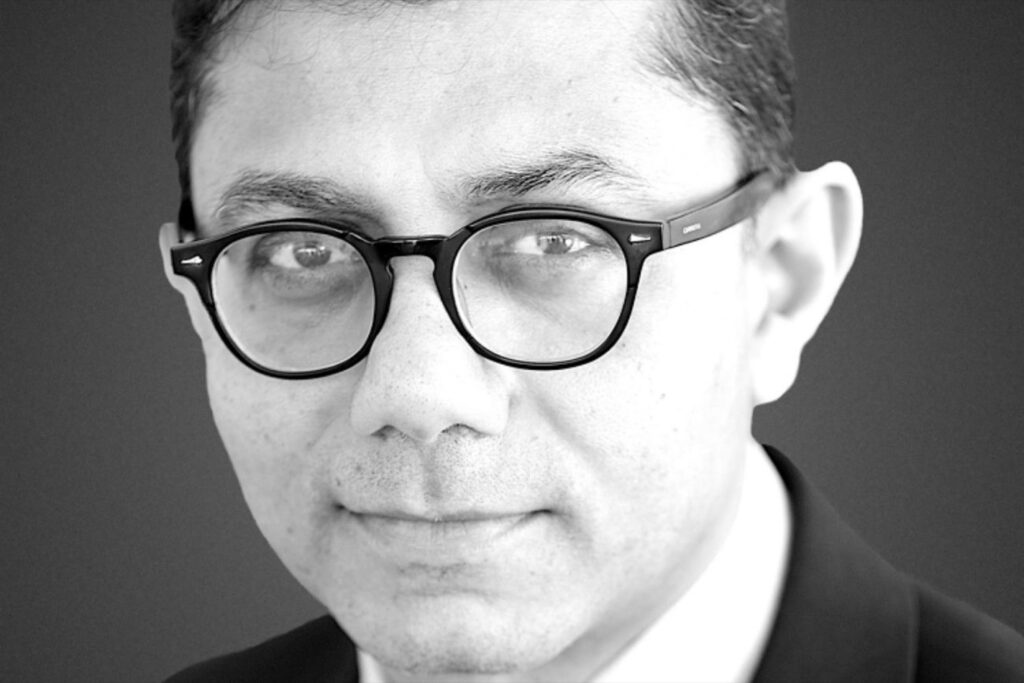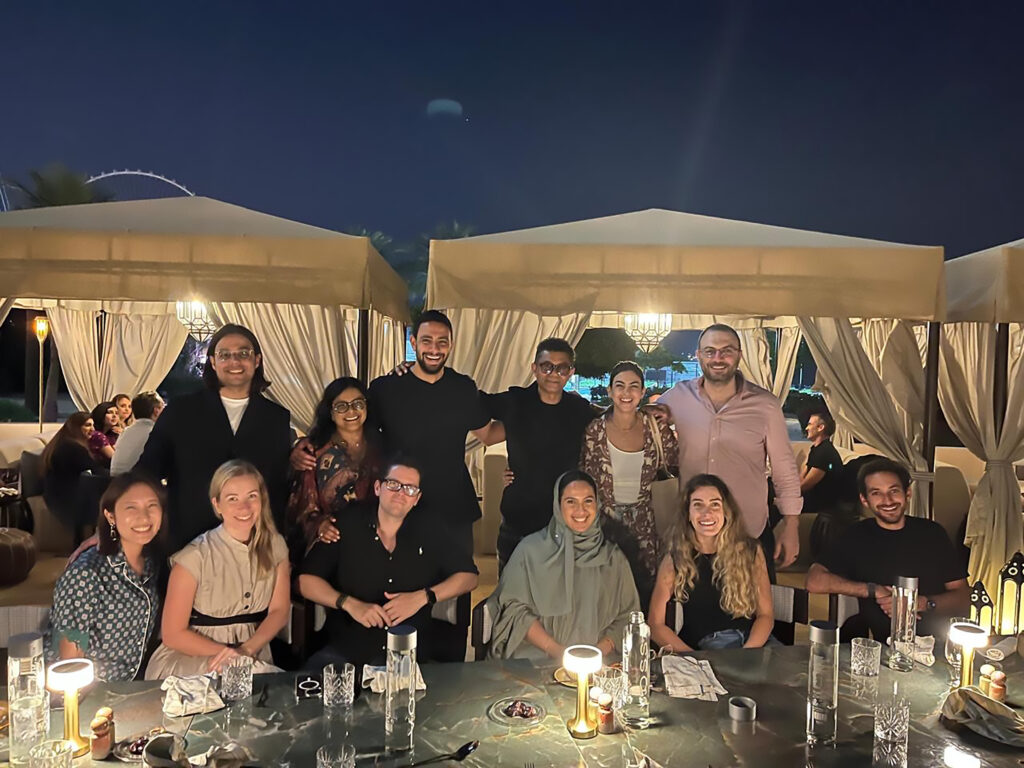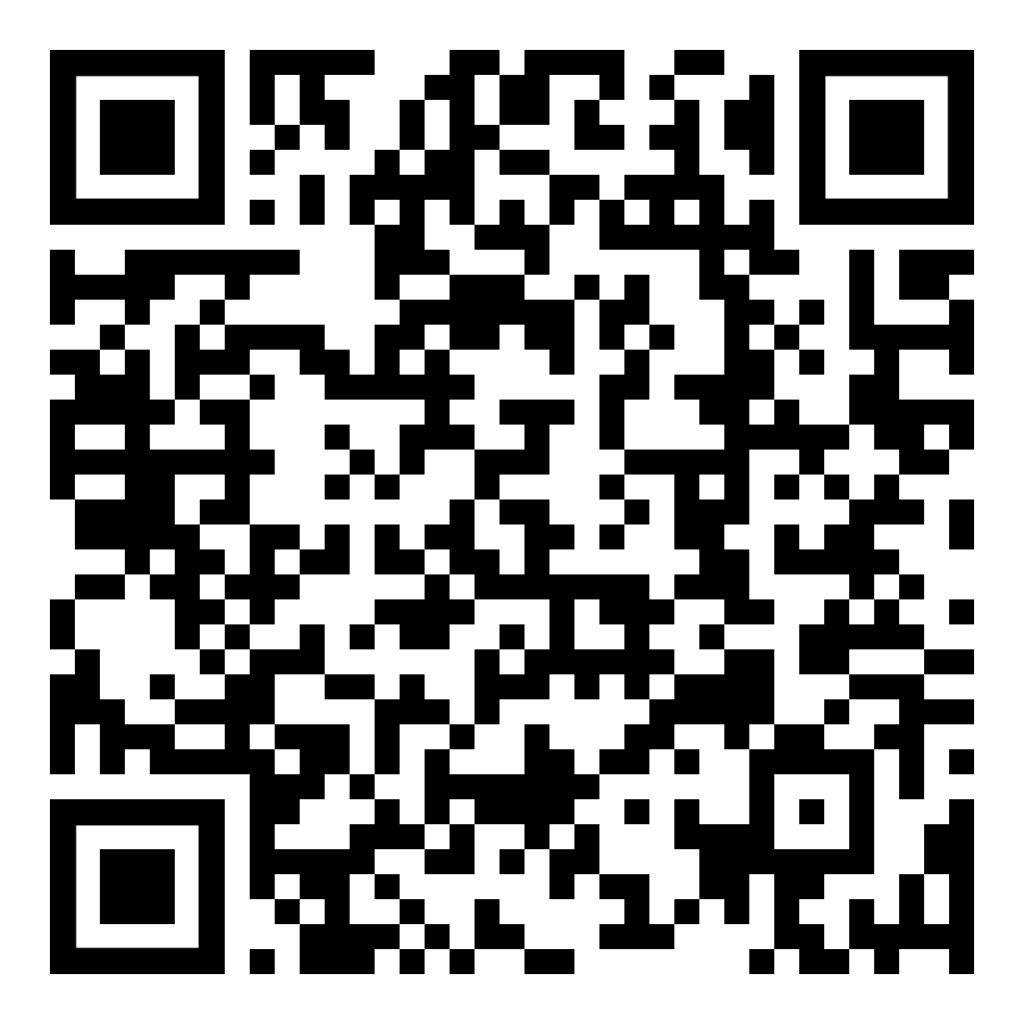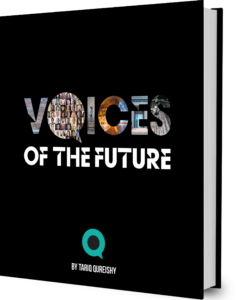When talking with Kushal Shah, the Managing Director of e& capital, I am struck by the depth and range of his experiences. Kushal, a man whose life journey began in the serenity of Nairobi, Kenya, opened our conversation with a profound reflection on his roots. “I was born and brought up in Kenya, where sometimes giraffes crossed the roads,” he shares, painting a picture of a life initially bounded, yet serene and stable.
Kushal’s early years were shaped by disciplines that went beyond the ordinary. At the age of seven, he would rise at dawn to meditate, a practice instilled by his grandmother. This discipline was not just about stilling the mind but also the body, creating a foundation of purpose and stability from a young age. His childhood was also marked by exposure to extreme athletics, surrounding him with a milieu of determination and effort, teaching him the essence of resilience and striving beyond limits.
Our conversation takes a turn towards Kushal’s educational journey as he reminisces about his initial days at Cambridge. He narrates his experience of cultural differences and how embracing them became a part of his DNA. He recalls the custom of greeting people with a handshake or an embrace, especially upon our second meeting of the day. This practice, ingrained in him from his Kenyan upbringing, often surprised others. They would question, “Why are you shaking my hand again? Why the second embrace?” To him, that was a natural expression of warmth. Through these interactions, he came to understand that while customs may vary, the genuine warmth conveyed by that second gesture of friendliness became a fundamental part of who he is. He adds: “It’s a distinct and unexpectedly delightful aspect of my character, one that, in my experience, tends to bring back a very positive energy, a good karma.

Kushal’s story then meanders through his career path, where he speaks candidly about his decision to become an accountant – not driven by parental pressure but by practicality and ease. His reflections on his career transitions are enlightening, especially his observations on the change in business models and the importance of trust, truth, and ethics. “Ethics and trust really is about what markers you leave behind on other people,” Kushal points out. He elucidates: “Undergoing health tests at age 50, where you monitor your physical markers over time, is akin to how trust and ethics function as markers on your consciousness. These markers are observed by others, indicating your position on the spectrum of trustworthiness. Similarly, through repeated interactions, like those second handshakes, you sense changes in someone’s emotions, reflecting their good or bad days. These markers represent karma. These interactions have built a deep understanding with others. With founders, this sense of trust and ethics becomes even more pronounced. It’s a long-term process, where the impact of the markers you leave on others defines the essence of trust and ethics.”
Our discussion delves deeper into the ethics of technology, especially in the context of AI. Kushal’s perspective is clear: “Our commitment is to safeguard what’s crucial – people’s data and the distinction between right and wrong. This principle serves as a definitive line and a line of defense in our operations. As we introduce new technologies, maintaining this ethical mindset is paramount. This ethos is not just a personal stance but a cultural value ingrained at both the executive and board levels, permeating our entire team. Our approach to ethics governs everything from our conduct to the technologies we adopt and how we use them to protect our customers.

The perceptions around data are drastically changing. From Big Tech companies using our data and creating algorithms they build to monetize our data, there’s a blurring of lines that needs to be addressed. “This relates to the simplicity with which children perceive right and wrong, seeing things in black and white without the gray areas that adults often consider. Children easily grasp clear concepts, such as opposing global warming.
Our approach to teaching and guiding them should focus on defining these clear distinctions rather than applying the more complex and nuanced perspectives we might use with a 40-year-old who has a wealth of diverse experiences.”
On discussing the future, I posit that we’re giving the children a ‘burning planet.’ How are we nurturing and empowering the youth to tackle these global issues? Kushal asserts: “The amount of brain power that’s being put into solving the burning planet is a big change from just a few years ago. In the old days, our parents pushed us into careers like engineering, medicine, law, etc., but now the parents, teachers, schools, and universities are offering sustainability-related courses. Is there the right amount of brain power shifting to these areas for the future? Definitely, yes.

We’re living in a world of rapid technological transformation and exponential change. Anything that can be digitized will be. However, anything that cannot be digitized, like love, harmony, compassion, kindness, generosity, heart, soul, spirit, common sense, and ethics, will be a million times more valuable. My thesis is that as we become more technological, ironically, we need to be more human, and technology serves us. Kushal’s response is illuminating: “Reflecting on Dubai’s evolution, it’s noteworthy how perceptions have shifted. A decade or so ago, Dubai was often viewed as just a concrete landscape lacking culture. Today, however, it’s a hub of diverse and rich cultures, strongly supported and community-driven. This transformation is parallel to what children are experiencing. They recognize the need for a tangible social culture beyond the virtual realms of platforms like Instagram. As my children have grown from teenagers to young adults, aged 18 to 22, I’ve observed their increasing engagementwith and drive towards this evolving social and cultural landscape.”
Kushal’s insights into entrepreneurship and technology are particularly striking. He describes entrepreneurship as riding the waves of technology, underlining the importance of being at the forefront of innovation. His views on nurturing future generations were equally compelling. Kushal emphasized the shift in educational focus toward sustainability and the importance of guiding young minds toward being more humane in a technologically advanced world.
As our conversation approaches its conclusion, Kushal shares his vision for the future. He hopes for a world where nature and the environment regain their rightful place, coexisting harmoniously with human advancements. “I would love it that in the next 50 years, we let the environment nature come back as a beast, and it’s not just the human in the loop, it’s the nature in the loop,” he says, envisioning a future where natural and technological ecosystems thrive in symbiosis.
In Kushal, we see a visionary who bridges the gap between the grounded wisdom of the past and the boundless possibilities of the future. His story is a testament to the power of embracing one’s roots while boldly charting a course into new frontiers. As a voice of the future, Kushal’s message is a clarion call to all who dare to dream and innovate for a better tomorrow.














